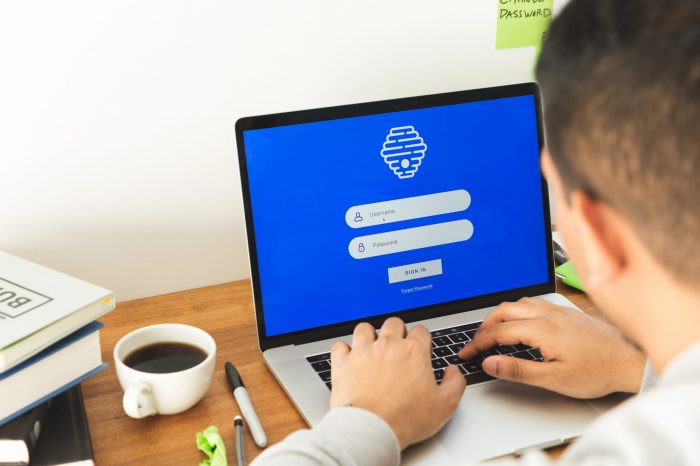Starting a business from home sounds like the dream, right? If you work in an office, we can only imagine that you’ve dreamt of rolling out of bed, putting on some sweats, making your way to the sofa, and working from the comfort of your own house all day with a giant pot of coffee next to you. Whenever you have a break, Netflix and a nap are there to embrace you. The ideal existence.
Well, realistically, running a business from home isn’t at all like that, if you want to do it well. There’s a lot lying on you if you’re your own boss, and self-motivation can’t be plucked out of thin air. If you don’t do it, nobody will — that’s the truth.
The vast majority of business conducted from home is online nowadays, which is no surprise really. This makes it more important than ever before to ensure your online security is in top form — if your entire working life is on your laptop or computer, then you really can’t afford to jeopardise that.
Let’s take a look at the importance of protecting your home business against online cyber threats, and how exactly you can do that.

Start Using a VPN Service
One of the first steps you could take in protecting your home business from cyber threats is starting to use a VPN service. For those who don’t know what this means, we’re going to explain it in a simplistic format.
A VPN is very simply a service provider — also known as a company which allows its user access to the internet. VPN stands for Virtual Private Network.
This means that the users of a VPN service have access to a secure and private network, which can connect several different locations and local networks. It’s also known as a VPN host.
This is a great option for those looking for an ultra-safe internet provider when conducting business. It’s well worth looking into if you’re mistrusting of the internet in general.
Be Cautious with Wi-Fi
Wi-Fi is undoubtedly a beautiful thing. It’s given us access to the internet in not only our homes, but in public places such as coffee stores and shopping malls. But did you know that public Wi-Fi can actually put you in danger of online threats?
It might be great being able to work wherever you like and use somebody else’s internet to do so, but you should be cautious of doing this if networks aren’t secure — particularly if you’re dealing with important documents.
The good news is that anti-virus protection can really help with this — and if you do choose to go with a VPN service, then that’s even better.
It’s all about being careful and taking the correct precautions before problems can arise. The more careful you are, the less likely cyber threats are going to affect you.
Choose Passwords Carefully
Are you one of those people who use the same password for literally everything? A lot of people do, and it’s for one reason — ease. It can be difficult to remember several different variations of passwords, but it’s a lot more secure if you do so.
The more complex you can make a password — i.e. including capital letters, numbers and figures — the more secure your accounts are likely to be. If you’re choosing the same password for your business accounts as you are for your Facebook, then you’re far more likely to find yourself in trouble.
Remember, if all of your passwords are the same, it means if a hacker gains access to one account, they immediately have access to them all. Be cautious and clever in the choosing of your passwords, and keep a note of them all in a safe place so you don’t forget them. We’d recommend keeping the note on paper in a drawer in your house so online hackers have no chance of accessing them.
Back Everything Up
Last of all, but by no means least, be sure to back all of your important files up.
You never know when your computer might crash, or a virus might take hold and the entire system needs to be wiped. If you haven’t backed up all of your important business files and this happens, then you’re in real trouble.
The last thing you want to do is start from scratch — so connect an external hard drive to your laptop or PC, and be sure to transfer all of your important files over. This way, you’re fully prepared for even the worst-case scenario.
Find a Home-Based Business to Start-Up >>> Hundreds of Business Listings.
















































